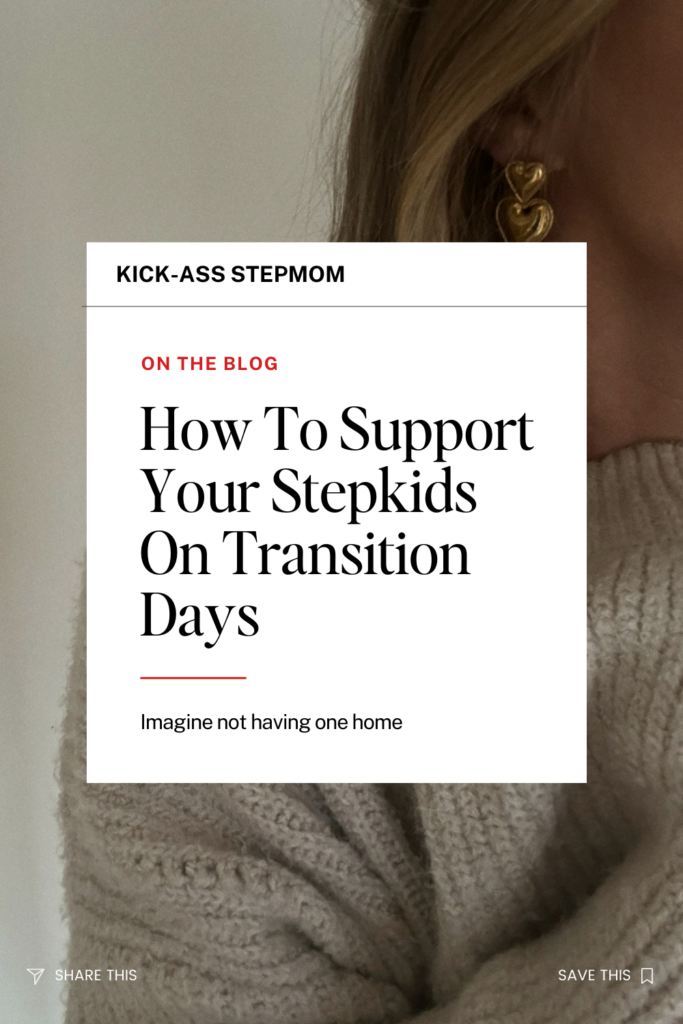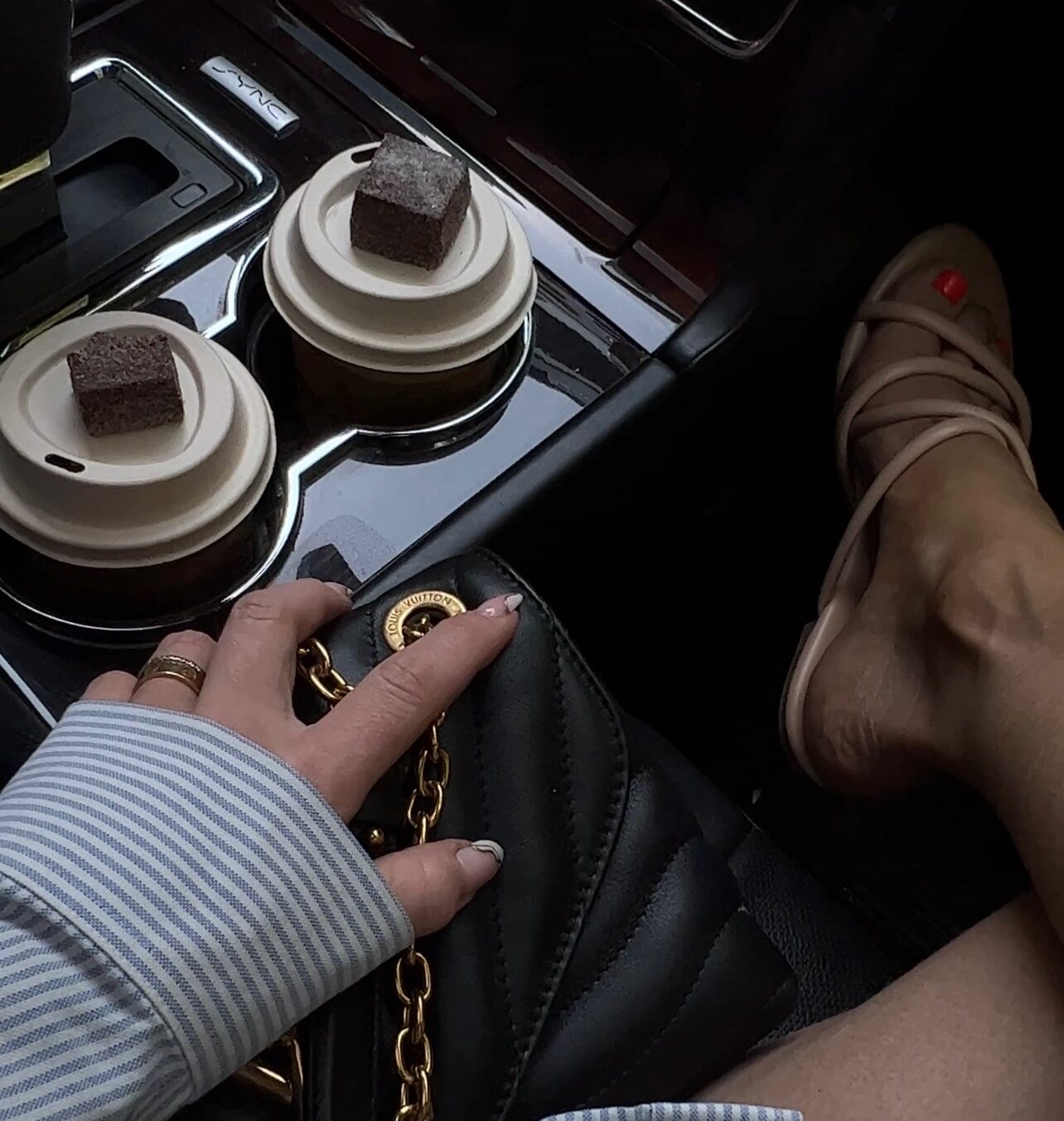Transition days.
Like em or loathe em’, we all have em’.
I want you to imagine something for a second: Imagine not having one home. One safe space. One bed. One bathroom. Always living out of a bag (this is true even if your stepkids have everything they need at your house).
Imagine not being able to bring your favourite blanket or sweatshirt with you for comfort, because it belongs at “mom’s” or was “bought for dad’s.” Imagine how frustrating that would be.
I know how unsettled I feel when I am always on the go. It rattles me. Increases my anxiety.
Now imagine being a kid and going through this regularly. Kids don’t have the same perspective and ability to regulate emotions that we do. They don’t have the tools. Haven’t had the life experience.
As stepmoms we feel like we don’t have a lot of control over our lives. Think about how our stepkids feel. We chose to get married; the kids didn’t choose for their parents to get divorced.
Always in transition. Never settled. Keeping their belongings in a backpack or dufflebag, never fully unpacked. Losing their favorite pajamas because they forgot to pack them, on top of remembering their sports gear, flute, and school books.
Two homes. Two sets of rules and expectations.
Loyalty binds between parents.
It’s a lot.
On transition day, stepkids often feel extra emotions, behave differently, or they aren’t themselves.
When they come to the new house of the week or weekend, they can be anxious, withdrawn, or quiet.
Sometimes they have more attitude – especially when they have spent time with a higher conflict ex.
Here are 5 ways to support your stepkids on transition days.

Lower your expectations
The first step is realizing we have expectations at all.
And we do. It’s human.
Lower your expectations, or have no expectations. If you expect your stepkid to run in the door and want to hang out with you…maybe….don’t?
Expectations only set us up to feel disappointed, annoyed, or angry.
If you expect your stepkid to be excited to see you, try neutralizing that expectation.
Give Space
Instead of bombarding them with questions, or hovering, you can go do your own thing and let them get settled into the environment.
Empathize with how it may be difficult. Ask: How can I support you today?
Asking something like, “Is there anything you need?” can go a loooong way.
Even if they say no, it shows you care and that you acknowledge the transition.
Create a special transition tradition – maybe it’s tacos and movie night or…
Practice extra grace
It can take time to get into the groove in a new environment, so give some grace implementing consequences.
As in, maybe your usual rule is that they have to take their shoes off.
But they’re coming a house where that isn’t a rule at all.
They likely aren’t trying to purposely piss you off…
They may just have forgotten the rule.
Give them the benefit of the doubt and let them settle in.
Don’t take things personally
If your stepkid(s) come back with a standoffish attitude, or a whininess, or {insert your stepkids’ behaviour here}, don’t immediately assume it’s because of you.
Sometimes stepmoms jump to conclusions, and it’s usually just kids being kids.
Take your cues from the kids
To create more flow and control the vibe of your home, read your audience.
If a kid goes to their room and shuts their door, that’s a cue they need some alone time.
If a kid keeps chatting and following you from room to room, that’s a cue they need some attention.
Try to go with the cues, rather than against.
Help them unpack
Stepkids have tons of shhhhh to remember each time they switch houses. And in the winter, there’s even more.
Gloves. Mittens. Hats. A special homework assignment. A birthday gift for a friend. Their lunch. Their glasses. Their glasses case.
The list goes on.
Depending on your relationship with your stepkid, it can be helpful to help them pack so they don’t forget anything, creating more work for you later.
You can even make a list of the items they need to pack on a whiteboard ora piece of paper and make it into a game.
As for unpacking, ask if they want your help, and if so, give them a hand so they don’t have to live out of a bag the entire time they’re at your house.
BONUS: One thing we did that really helped with the transition is we would pick the kids up on transition day vs having them dropped off. This helped with the transition of belongings between houses. We could make sure they had what they needed, and send them back into the house to grab something if they forgot






Read the Comments +